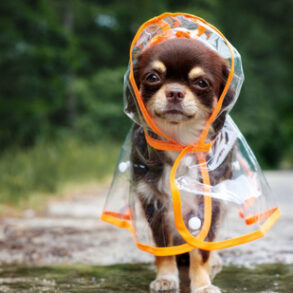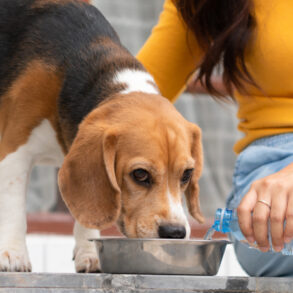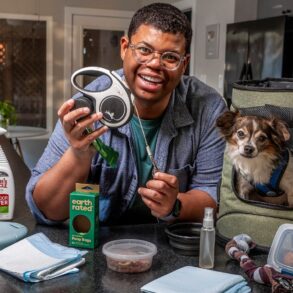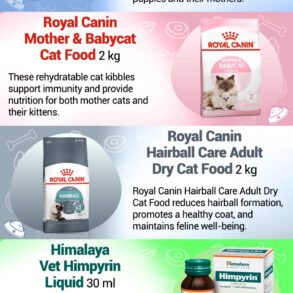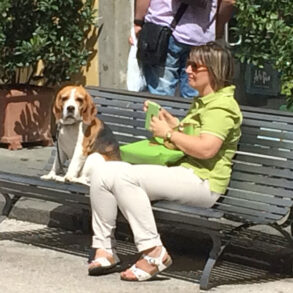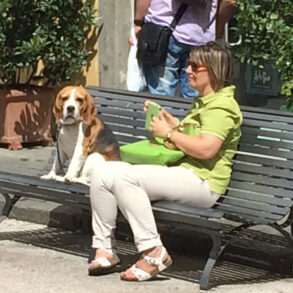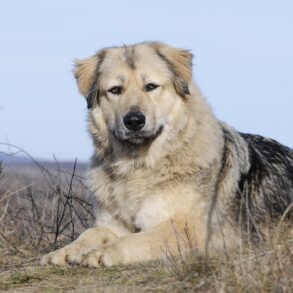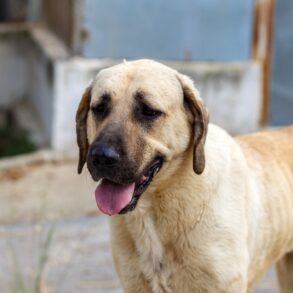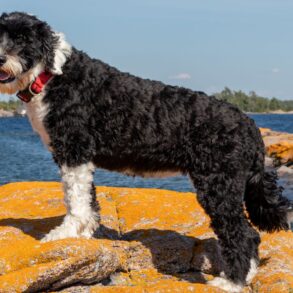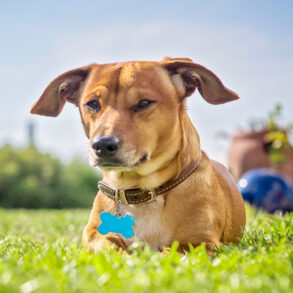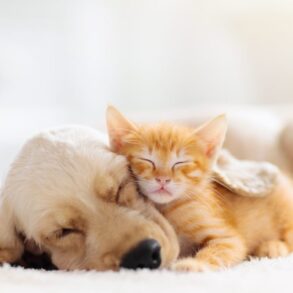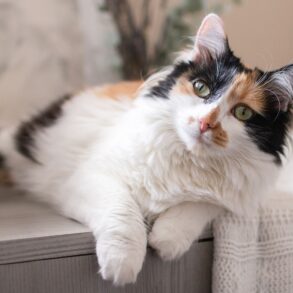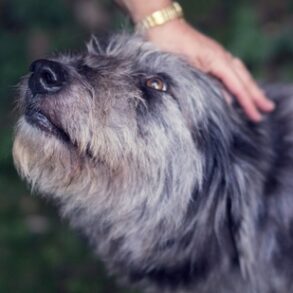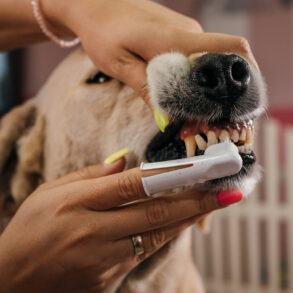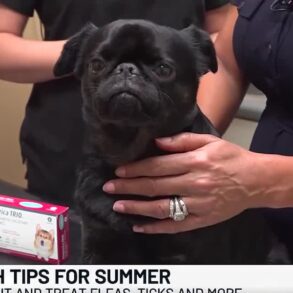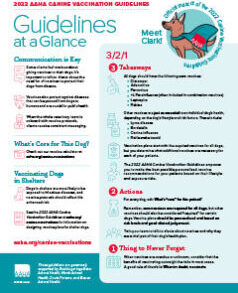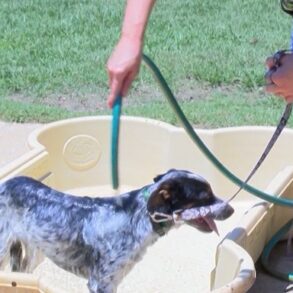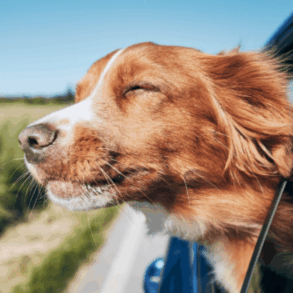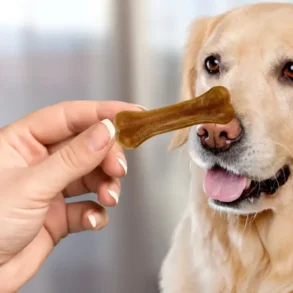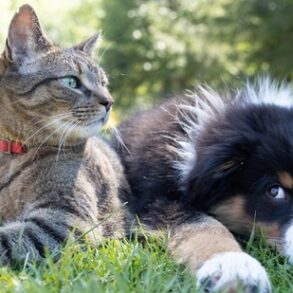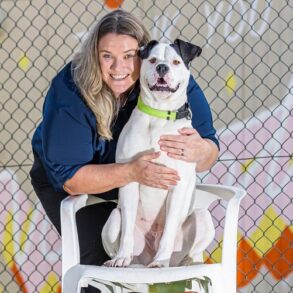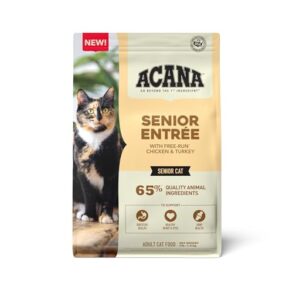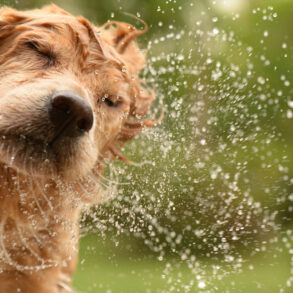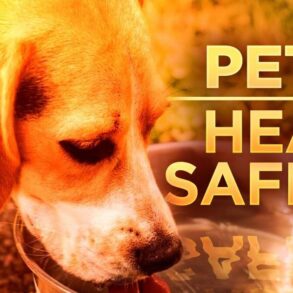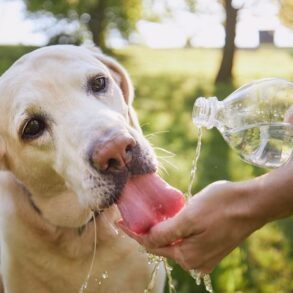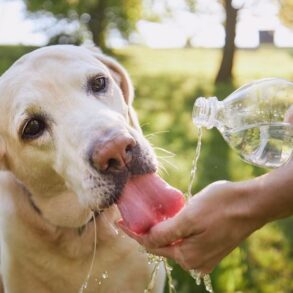
The holiday season is a time of joy, togetherness, and celebration, but for pet owners, it also comes with unique challenges. Creating a safe, festive environment for pets while involving them in the holiday fun requires a bit of planning and care.
Dr. Lori Teller, a clinical professor at the Texas A&M College of Veterinary Medicine & Biomedical Sciences, shares expert tips to ensure your holidays are both merry and pet-friendly.
Decking The Halls Safely
Holiday decorations bring an abundance of sparkle and charm that captivate humans and pets alike, but these festive touches can pose serious risks to our four-legged friends if precautions aren’t taken.
“Shiny and stringy items like tinsel, garlands, and gift wrap ribbons are especially tempting to pets,” Teller said. “If ingested, these can become lodged in pets’ stomach or intestines, causing severe or even fatal damage.”
To prevent accidents, avoid placing gifts wrapped with bows or ribbons under the tree until gift-opening time. Hide electrical cords under rugs or tape them securely to prevent chewing, and opt for battery-operated candles or low-voltage LED lights to reduce fire and burn risks.
Even the Christmas tree isn’t without hazards. Cats may see it as a climbing challenge, increasing the chances of it toppling over. It’s also wise to place ornaments, especially fragile, glass ones, higher on the tree where pets can’t reach them.
“It’s important to anchor the tree securely and to keep pets away from the tree stand water, which can harbor harmful chemicals or bacteria,” Teller said. “Baby gates or fire guards can help limit access.”
Treats And Plants To Avoid
The holidays are filled with tempting treats, but many of these can be harmful to pets. Foods like chocolate, raisins, some nuts, and anything containing xylitol — a sugar substitute found in sugar-free candies, baked goods, and toothpaste — can cause severe health issues.
“I recommend keeping holiday treats and toxic foods stored securely and well out of reach,” Teller said. “Fatty or creamy foods can also lead to vomiting, diarrhea, or pancreatitis if consumed in large amounts.”
Gingerbread houses and similar edible decorations should also be kept away from pets. Instead, consider creating non-edible versions from materials like wood, cardboard, or Legos.
Certain holiday plants are another potential hazard. While poinsettias aren’t generally poisonous, they can irritate pets’ mouths or cause gastrointestinal upset.
Other popular holiday greenery — such as mistletoe; holly and holly berries; yew and yew berries; lilies; Christmas roses; and amaryllis bulbs — can be toxic. For a safer option, try reusable silk plants or pet-safe alternatives like Christmas cactus, orchids, archira, and roses.
Certain decorations and ornaments also require caution. Salt dough ornaments, for example, often contain glue and high salt levels that can be harmful if ingested. Potpourri, essential oils, or homemade snow globes that may contain antifreeze, are all harmful to your pets.
Purr-fect Gifts for Pets
From playful pups to curious cats, every pet has unique preferences that can guide gift-giving. For example, gifts like orthopedic beds for older pets or time with a trainer for energetic dogs can enhance their well-being and strengthen the bond with their owners.
“Many dogs will delight in a durable chew toy, a ball for endless games of fetch, or an extra-squeaky stuffed animal,” Teller said. “Cats might enjoy a robotic mouse, a scratching post, or even a fresh catnip plant.”
Interactive toys, puzzle feeders, multi-level cat trees, and other enrichment activities are thoughtful and practical gifts that provide entertainment, mental stimulation, and exercise for pets.
For tech-savvy owners, pet cameras with treat dispensers or laser pointers add an interactive touch.
Regardless of the gift, it’s important to prioritize safety. Toys and accessories should be appropriately sized — as large dogs can choke on items meant for smaller pets — and free of small pieces that could be pulled off and swallowed.
“Clothing, collars, and harnesses should fit snugly but comfortably, avoiding anything too tight or too loose,” Teller said. “Food treats, while popular, should be checked for allergens or ingredients that might not suit a pet’s dietary needs.
“One of the best gifts for a pet is ensuring their overall health and wellness,” Teller said. “Preventive care — including annual veterinary checkups, vaccinations, and consistent heartworm, flea, and tick prevention — is an invaluable way to show love.”
The holidays are a wonderful time to celebrate with loved ones, including the furry ones who bring so much joy to our lives. By taking a few precautions, you can create a festive, safe, and inclusive holiday environment where pets feel just as cherished as everyone else.
This post was originally published on this site be sure to check out more of their content.







